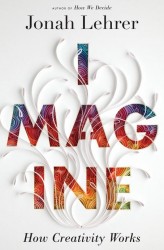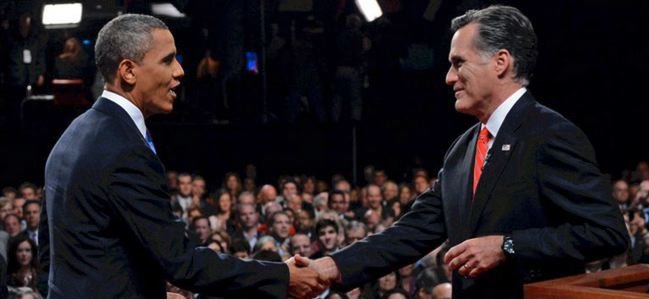Why Haven’t There Been More Plagiarism Scandals This Election?
 Earlier this month, Peter Berg, the writer and director of the TV series “Friday Night Lights” circulated a letter making it clear that he was not happy with Governor Mitt Romney’s campaign.
Earlier this month, Peter Berg, the writer and director of the TV series “Friday Night Lights” circulated a letter making it clear that he was not happy with Governor Mitt Romney’s campaign.
According to Berg, the campaign had plagiarized the slogan “Clear Eyes. Full Hearts. Can’t Lose.” from his TV show and Berg, who is a supporter of President Barack Obama, asked the campaign to “Please come up with your own campaign slogan.”
The controversy was unusual for many reasons. Not just because it raised questions about plagiarism and slogans as well as issues of plagiarism vs. homage, but also because it was the only time, so far, a plagiarism scandal involving one of the main candidates in the election received broad press attention.
Compare this to the 2008 cycle, which saw major plagiarism allegations be levied against now-President Barack Obama, his opponent John McCain and now-Vice President Joe Biden.
Clearly things are different this year and, while people are still interested in the Biden plagiarism scandal, mostly because it was the only scandal of the three with significant merit, there hasn’t been much in the way of new allegations against any of the candidates.
The question then becomes why? Why was the last cycle such a minefield for plagiarism scandals and this one relatively free of them? There are many possible reasons for the change but, most likely, the real reason is a combination of all the factors at play.
A Busy Summer
 Even if the political candidates were able to get through the election cycle, so far, without any major plagiarism scrapes, the same can not be said for the news media. Between Jonah Lehrer, Fareed Zarakria and Margaret Wente, just to name three, it’s been called journalism’s “Summer of Sin” and the problems seem to be continuously mounting.
Even if the political candidates were able to get through the election cycle, so far, without any major plagiarism scrapes, the same can not be said for the news media. Between Jonah Lehrer, Fareed Zarakria and Margaret Wente, just to name three, it’s been called journalism’s “Summer of Sin” and the problems seem to be continuously mounting.
The media, for the lack of a better word, is seemingly burned out on plagiarism scandals and is doubly so since they’ve been the center of nearly all of them.
There’s just not much motivation for news outlets to start looking for plagiarism in the candidate’s speeches and marketing material because not only is the public tired of such scandals but they themselves feel threatened.
As such, while I’m sure the media would love for there to be a major plagiarism scandal, they aren’t going out of their way to find one it seems.
However, that doesn’t even begin explain the almost amazing silence this cycle. Because even if the mainstream media could be pushed into silence, it’s unlikely that the same could be said for online and non-traditional sources.
Smarter Campaigns
Even if the mainstream media isn’t pursuing plagiarism as intently, it’s safe to say that, if there were a major problem with something one the campaigns did, the bloggers and/or social media would be all over it almost instantly.
Every speech, transcript, marketing item and blog post by each candidate and their campaigns is being combed through by their opponents, looking for any opening to attack.
Plagiarism would be such an attack, as it was in 2008, and it stands to reason that, if such an opening were there, it would be seized upon.
Clearly, the campaigns have developed a better understanding about how plagiarism, or even the perception of plagiarism, can hurt their election chances and divert attention away from the topics at hand. I suspect that the campaigns are being more careful than ever about ensuring their words, images, video, etc. are original, cited or otherwise not used in a way that could be construed as plagiarism.
But that, in turn, doesn’t explain the recent Romney case. A careful campaign wouldn’t use a slogan from a TV show in such a manner. Though many see what Romney did as homage to the show, which he has admitted to enjoying and being inspired by, using the slogan without permission and making broad use of it was a very big risk. Especially using the slogan on posters and repeating it so heavily in speeches.
While it can be seen as a case of intended homage being attacked as plagiarism, it seems unlikely that the Romney campaign would take that risk if they were truly keeping plagiarism issues at the front of their mind.
The Biggest Likely Problem: Lack of Reason
When you look back at the 2008 scandals, one thing becomes amazingly clear: None of them had any impact on the election.
Much of this was because all of the scandals were either minor in nature or were from deep in the candidate’s past, as with Biden. Though they were pushed heavily by the supporters of their opponents, none of the cases did much to woo opponents to switch sides.
While Biden’s plagiarism allegations ended his Presidential aspirations in 1988, forcing him out of the primaries, that was only after other allegations of plagiarism arose, including his admission to plagiarizing in law school. The scandal had to reach significant proportions before it ended his already weak chances in the primaries and, even then, didn’t end his political career (he is still Vice President afterall).
This isn’t so much because people are not outraged by plagiarism, as the Jonah Lehrer case showed, but because being called a plagiarist in modern political discourse is a fairly tame thing to say. Every day, candidates call each other liars, accuse each other of trying to destroy various groups of people and even being against the country that they are running for office in.
Calling someone a plagiarist, especially when the only evidence is a few identical sentences or some reused ideas, is barely noticed. Unless there is some evidence of a very serious transgression, such as a pattern of plagiarism over their career or evidence that they earned a degree via fraud, being a plagiarist just isn’t that impressive.
To me, this says much more about the nature of modern political discourse when being called a plagiarist is a fairly tame attack. But the truth is that, unless there is a mountain of evidence and a significant reason, most voters simply won’t switch sides over a plagiarism allegation, especially if switching sides means switching to a new party.
To voters, in the U.S. at least, there are much worse things a candidate could be.
Bottom Line
In the end, it’s probably a bit of all three going on. The media is definitely wary of yet another plagiarism scandal, the campaigns are most certainly smarter about how they vet content for originality and the nature of political discourse has made a plagiarism allegation, especially a weak one, an unappealing target.
This isn’t to say that there won’t be plagiarism scandals in the future. As Germany has shown, plagiarism allegations can still be very deadly to a political career and powerful tools for opponents, but only if the scandal is significant enough.
On one hand, I’m hopeful that the days of blowing small plagiarism scandals out of proportion are over. Though certainly I would want to be aware if a candidate were a genuine plagiarist, mistakes and errors, which are often made by staff members, don’t necessarily reflect on the candidates character or skill and making mountains out of molehills cheapens the nature of plagiarism uses as nothing more than a grindstone to sharpen political axes.
That, in the long run, makes it more difficult to deal with more serious cases of plagiarism by making it seem like less of an offense.
Besides, the levity, balance and analysis needed to deal with plagiarism allegations are rarely found in political discussion, creating a very warped view of any alleged plagiarism, one that is always colored with a political tint and almost meaningless as part of the larger conversation on the topic.
So while plagiarism still is and will remain a factor in political campaigns, hopefully its impact will only be felt when truly appropriate.
Want to Reuse or Republish this Content?
If you want to feature this article in your site, classroom or elsewhere, just let us know! We usually grant permission within 24 hours.
